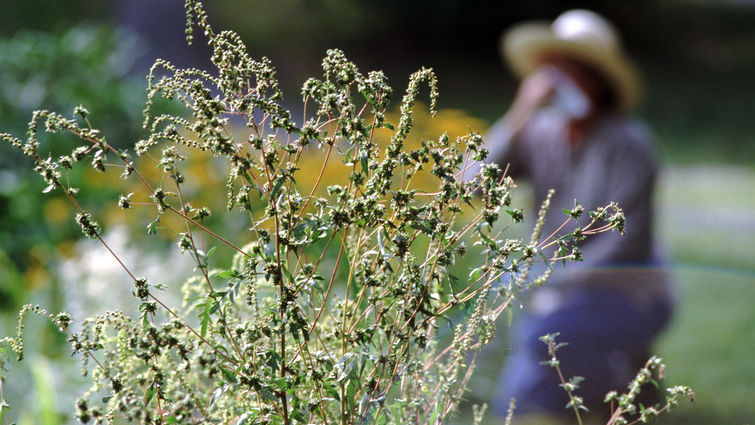

Living in the Inland Empire poses specific challenges for individuals prone to environmental allergies. Luis Saca, MD, department head of allergy and immunology, sheds light on the impact of environmental allergens and effective strategies for managing seasonal allergies.
The Inland Empire experiences a more intense blooming season compared to coastal areas, primarily due to factors such as the Santa Ana winds bringing desert pollen into the region. Additionally, higher levels of air pollution inland exacerbate allergic reactions, making life difficult for those with hay fever or seasonal allergies.
Over the years, Saca has observed shifts in the prevalence and intensity of seasonal allergies, often influenced by changes in climate. Increased pollen production and longer pollen seasons, coupled with weather phenomena like El Niño or La Niña, contribute to variations in allergy intensity.
“This year, heavy rainfall is anticipated to worsen allergy season,” Saca said. “Managing exposure to allergens is crucial for individuals with seasonal allergies.”
Indoors, measures like dust mite control, pet management, mold prevention, and pollen control can help alleviate symptoms. Outdoors, avoiding activities during high pollen seasons and practicing good hygiene, like showering after outdoor exposure, are essential.
For people sensitized to indoor and outdoor allergens, Saca recommends the following measures:
Dust mite control
- Encase mattress, box spring, and pillows.
- Wash bed linen in the hot water setting of the washing machine, 130 F.
- Remove carpets and replace them with wood, tile, or linoleum.
- Avoid clutter, stuffed toys, dust catchers, and upholstered furniture in a bedroom.
- Use a well-fitting face mask with a filter when cleaning, and stay out of the room for 1 hour after cleaning.
- Use a vacuum cleaner with a HEPA filter or multi-layer bag for dust containment.
- Avoid excessive heat and humidity which helps dust mites to grow.
Pet dander
- Avoid having pets you are allergic to. The next best measure is to keep the pet out of the house, bedroom, and away from carpets and furniture.
- Consider investing in a portable HEPA filter purifier.
- Have someone else groom, feed, and walk the pet. Washing the animal once a week with plain water decreases the shedding of dander.
Mold Control
- Check for mold in bathrooms, closets, and behind heavy furniture in north-facing rooms during rainy weather. Use diluted bleach solution to clean and spray with disinfectant to prevent mold growth.
- Do not keep live potted plants indoors.
- Do not allow foods or produce to get moldy.
- Avoid heat, humidity, and dark areas, which encourage mold growth.
- Avoid collection of dead plants and leaves outdoors. If present, either use a mask when clearing them or have someone else clear it.
Pollen Control
- Avoid exercising outside during the daytime in high pollen season.
- Keep windows and doors closed in windy weather.
- Wear a mask during heavy pollen season.
- Take a shower as soon as you come home from spending time outdoors, and rinse your sinuses with saline solution.
Treatments
While some turn to medicinal or holistic treatments for relief, Saca advises caution and recommends consulting with a healthcare professional before trying alternative therapies. Certain herbs and supplements may help manage symptoms, but more research is needed to confirm their effectiveness and safety. Nasal irrigation, a practice using saline solution to rinse the nasal passages, can also provide relief.
Allergies in children
Saca says parents should be vigilant for signs of seasonal allergies in young children, such as chronic runny nose, sneezing, itchy eyes, or a subtle or persistent cough.
“Sometimes a clue of allergies is a subtle seasonal cough, wheezing, or symptoms similar to a viral cold that take a long time to clear,” Saca said.
A family history of allergies, secondhand smoke, and exposure to indoor pets increase the risk of allergic rhinitis. Consulting with a pediatric allergist can help parents accurately diagnose and manage their child's allergies.
Ask your primary care physician for a referral to Allergy and Immunology to speak with an allergist experienced in treating region-specific allergies.


